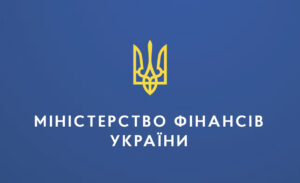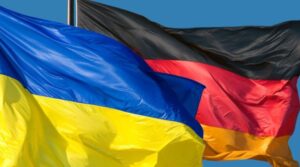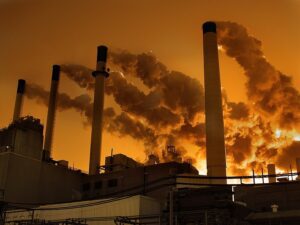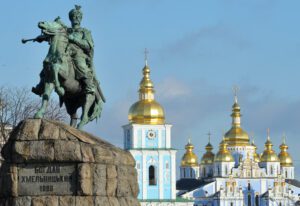
The Ukrainian state budget for 2025 allocates UAH 14.5 billion for science funding, while the draft (adopted) state budget for 2026 sets this figure at UAH 20.1 billion, according to materials from the Ukrainian Ministry of Finance.
In the Ministry of Finance’s presentation on the 2026 budget, 3.2 billion hryvnia is earmarked for supporting science on a performance basis, 1 billion hryvnia for creating scientific centers for defense developments, and 0.7 billion hryvnia for projects by young scientists.
At the same time, the latest available official summary statistics on internal expenditures for research and development (R&D) refer to 2024: they amounted to UAH 28.328 billion, which is 32.7% more than a year earlier; R&D intensity (share of GDP) increased to 0.37% from 0.30% in 2023.
According to the summary review, in 2024, 616 organizations were engaged in research and development, and the number of personnel employed in R&D was 63,800.
In terms of the structure of R&D funding in 2024, 30.6% came from the organizations’ own funds, 40.8% from the public sector (including 38.5% from the state budget), 11.6% from the business sector, and 15.9% from foreign sources.
By sector, the business sector accounted for 59.9% of domestic R&D expenditure, the public sector for 33.4%, and the higher education sector for 6.7%.
Ukrainian legislation sets a benchmark whereby the state provides budgetary funding for scientific and scientific-technical activities in the amount of at least 1.7% of GDP.
Compared to the EU, Ukraine’s R&D indicators remain low: according to Eurostat estimates, in 2024 the European Union spent €403.1 billion on R&D, and R&D intensity amounted to 2.2% of GDP (unchanged from the previous year).
The “domestic R&D expenditure” indicator reflects the total expenditure on research and development within the country from all sources. The “funding for science in the state budget” indicators are a narrower snapshot and are not equal to total domestic R&D expenditure.
https://expertsclub.eu/ukrayina-v-2026-r-planuye-201-mlrd-grn-na-nauku/

On February 24, 2025, the Swedish government announced that it will provide financial support to the Ukrainian Institute in Sweden in the amount of SEK 9 million to implement projects aimed at promoting Ukrainian culture.
“Russia’s full-scale invasion of Ukraine has caused enormous cultural destruction. Russia’s attack on Ukrainian cultural identity is manifested in everything from the massive looting of cultural heritage to the destruction of historical monuments,” the country’s highest executive body said in a statement.
The Ukrainian Institute in Sweden was founded in 2014 and is headquartered in Stockholm. The main areas of its activity are cultural diplomacy, education and public opinion formation.
“The Ukrainian Institute in Sweden plays a key role in preserving Ukrainian culture beyond the Russian destruction and ensuring that Ukraine is represented on international cultural platforms. Recognizing this important mission, the Swedish government has decided to provide financial support to the Institute to continue its activities,” the Swedish government said.
In the face of Russian attempts to deprive Ukraine of its cultural identity, the Institute works to preserve Ukrainian cultural heritage. This is achieved by disseminating knowledge about Ukraine, its history and culture, creating a platform for Ukrainian art abroad, representing Ukraine in the Swedish and European cultural space, and promoting Ukraine’s European integration through cultural dialogue.
Raising awareness of Ukraine in Europe and vice versa also reduces the impact of disinformation and strengthens the resilience of Ukrainian society.

Germany will allocate EUR1 billion in grant funding to Ukraine for priority government spending, the corresponding agreement between the governments was signed on June 24, Minister of Finance of Ukraine Serhiy Marchenko told
“I thank my friend German Finance Minister Christian Lindner for the speed in implementing this important decision. This financial support is more important than ever and will bring our victory closer,” the head of the Ukrainian Ministry of Finance wrote on Facebook.
Earlier it was reported that these funds from Germany, presumably, will be provided through a special account administered by the International Monetary Fund (IMF).
In April 2022, the IMF decided to create an administrative account for crediting funds as part of the Special Drawing Rights (SDR) from donor countries in favor of Ukraine. All funds raised using this account should be used to maintain the financial stability of Ukraine in the form of grants or credits (loans).

The United States will provide Ukraine with new funding to help diversify its energy resources, U.S. Secretary of State Antony Blinken has said.
“We are also discussing ways to ensure the security of energy supply to Ukraine. That includes providing new funding to help Ukraine diversify its energy resources, working with key allies and partners to bring to bear all available leverage and pressing for an extension of Ukraine’s gas transit agreement with Russia and supporting efforts of Ukraine to connect its electrical grid to Europe’s,” Blinken said at a press conference following a meeting of the United States-Ukraine Strategic Partnership Commission in Washington on Wednesday.

The initiative for coal regions in transition in the Western Balkans and Ukraine, led by the European Commission, will help them attract funding from a number of international financial institutions (IFIs), according to the announcement of the annual meeting of the initiative on June 23-25, made by the Delegation of the European Union in Ukraine. “The aim of the event is to support open, multi-stakeholder dialogue on coal phase out and just transition towards sustainable energy sources in Bosnia and Herzegovina, Kosovo, Montenegro, North Macedonia, Serbia, and Ukraine,” according to the announcement.
As noted in the EU Delegation, “the initiative will help coal regions access financing for transition projects or programmes, based on various sources available from the European Commission, the World Bank, the European Bank for Reconstruction and Development, and the European Investment Bank.”
In addition, the initiative contains four other pillars of support. This is a comprehensive stakeholder dialogue, an exchange program between coal mining regions, trainings by the Coal Region Learning Academy and technical assistance.
As stated on the website of the European Commission, the initiative for coal regions with economies in transition in the Western Balkans and Ukraine was launched in December 2020 and aims to help countries and regions move from coal to a carbon-neutral economy. It will support coal regions in the EU’s neighboring countries, namely Bosnia and Herzegovina, Kosovo, Montenegro, North Macedonia, Serbia and Ukraine.
The initiative is managed by the European Commission and collaborates with six international partners: the World Bank, the Energy Community Secretariat, the European Bank for Reconstruction and Development (EBRD), the European Investment Bank (EIB), the National Fund for Environmental Protection and Water Management of Poland (NFOSiGW), and the College of Europe in Natolin.

The State Agency for Tourism Development of Ukraine intends to ask for an increase in funding to UAH 700 million, and will also initiate a change in the public procurement for marketing, Head of the agency Maryana Oleskiv has said.
“This year it is enough [UAH 100 million for the development of the tourist potential of Ukraine], since the agency starts using funds with a five-month delay. But in general, this money will not be enough for a large-scale advertising campaign, especially in TV. There is no need to do it, because the TV channels already pick up the content about Discover Ukraine, then abroad it is necessary. But there is not enough money for this, because, for example, a week of digital advertising on the BBC costs $100,000, and even more expensive on TV,” Oleskiv said in an exclusive interview with Interfax-Ukraine.
She said that next year more funds are needed to develop the tourism potential, since Ukraine is not competitive, if we compare, for example, how much Turkey or Georgia spend on such needs.
“For 2021, we plan to give a budget request for UAH 700 million. But here it is worth emphasizing that if we cannot make changes to public procurement and carry out marketing activities a little differently than provided by the ProZorro platform, it will be difficult for us even to use the existing funds,” Oleskiv said.
According to her, given the lengthy procedures for approval and coordination of various documents, which took the agency more than five months, the agency is only now starting to announce tenders for the promotional campaign.
“This model is ineffective for the marketing of the country. Everything must be stable. We cannot stop for six months and not engage in promotion. There must be planning for at least two or three years, the possibility of flexible use of the budget, depending on any changes,” she added.
The head of the State Agency for Tourism Development said that the existing system of public procurement does not allow doing this, which, in turn, greatly complicates the marketing of Ukraine in general.
“Therefore, we will initiate a conversation about amendments to the public procurement law to make a different procedure for marketing procurement. It may need to be some kind of supervisory board from different people from creative fields, or, for example, a tender for one agency per year, which would work with this product within the allocated budget according to a certain plan, changes to which would be made in agreement with this supervisory board. This should be a completely different approach than what exists now,” Oleskiv said.